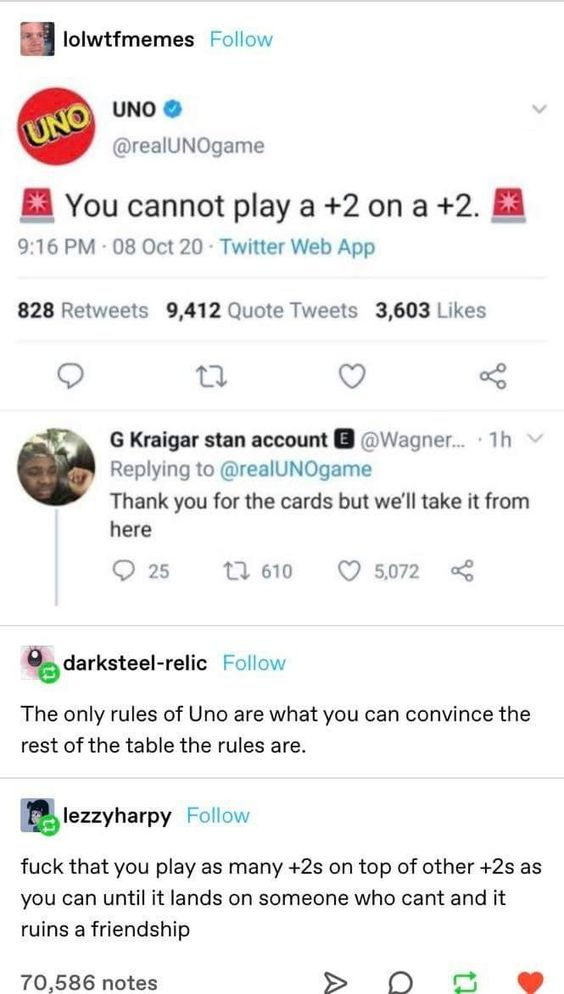this post was submitted on 03 Feb 2024
838 points (97.8% liked)
tumblr
3889 readers
573 users here now
Welcome to /c/tumblr, a place for all your tumblr screenshots and news.
Our Rules:
-
Keep it civil. We're all people here. Be respectful to one another.
-
No sexism, racism, homophobia, transphobia or any other flavor of bigotry. I should not need to explain this one.
-
Must be tumblr related. This one is kind of a given.
-
Try not to repost anything posted within the past month. Beyond that, go for it. Not everyone is on every site all the time.
-
No unnecessary negativity. Just because you don't like a thing doesn't mean that you need to spend the entire comment section complaining about said thing. Just downvote and move on.
Sister Communities:
-
/c/[email protected] - Star Trek chat, memes and shitposts
-
/c/[email protected] - General memes
founded 2 years ago
MODERATORS
you are viewing a single comment's thread
view the rest of the comments
view the rest of the comments

Next you're going to tell me I can't sandbag on purpose in Spades to trick the other team into reneging.
Do you mind a quick elif on this? I don't know spades and immediately got overwhelmed trying to look up these terms and research enough to know their context x.x
You know what I've been playing spades since I was 9 and I'm as confused as you. Reneging means playing a card from the wrong suit, i.e. playing a spade even though hearts was led and you have hearts. This happens very rarely and it's almost always a player error, and it's almost never done in relation to the bid. There's no strategy that involves reneging, it's just a penalty when someone sees it happen. (Someone always sees it happen. It's hard to renege without someone at the table knowing what cards should be left.)
It's possible OP was talking about "setting" the other team, which means tricking the other team into bidding overconfidently so they fail to take enough tricks. (This results in a big score penalty for the team going set.) Sandbagging (deliberately underbidding) can definitely be used, and legally, to make the other team go set.
Before you play a round you guess how many of the 13 'books' you will win. Books come from the single cycle where everyone throws out one card. The winner collects the 4 cards like a little book and count it as a point.
If you win more books than you guessed, you collect one sandbag for each book overguessed. Every x (usually 10?) sandbags and you get a permanent penalty against your total score.
Reneging is almost the opposite. If you win less than you guessed, you get a penalty instead of adding anything to your score that round.
They're suggesting that if they guess first, they will purposely make their guess less books than they know they have (and collect sandbags) to hopefully trick their opponent to guess more. It can be easy for the last person who guesses to just subtract what's been claimed from 13 for a good ballpark of where they should guess, so if there's a lot left it's easy to bite off more than you can chew.